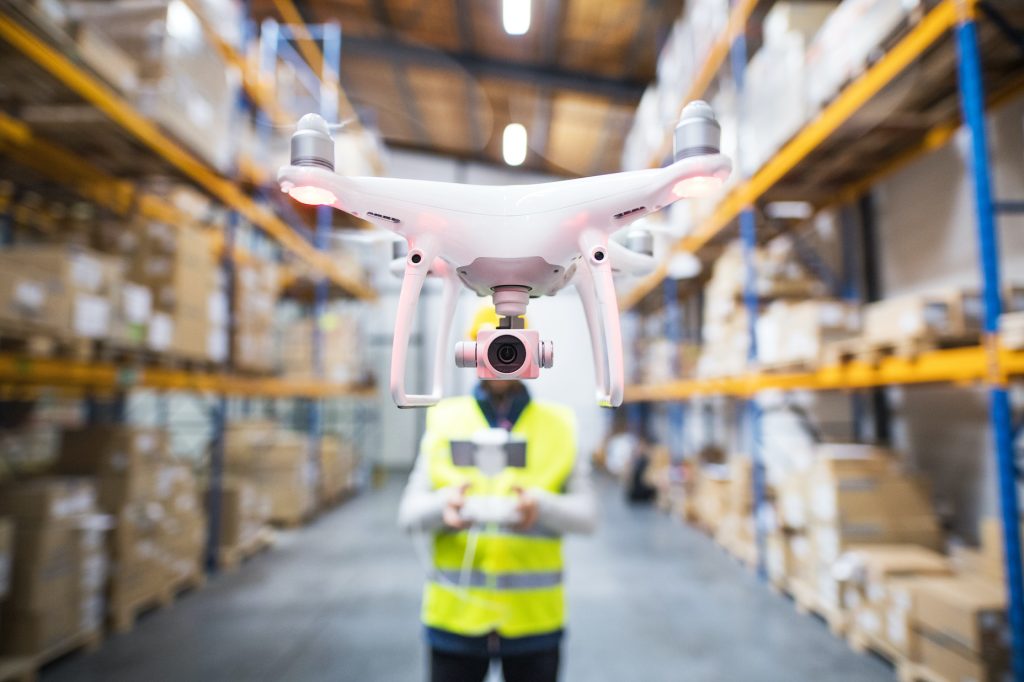Almost a million commercial drones could be zooming around Britain by 2030.
The UK government, along with British industries, have thrown £273 million behind aerospace innovation, including the creation of a drone superhighway. Called Project Skyway, this will be an air corridor above the Midlands where unmanned aircraft can buzz about their business without being directly supervised.
Previously, commercial drones generally had to be in the eyesight of their pilot at all times, even if those pilots weren’t actually doing much piloting (many drones have been built to fly autonomously). The point was to improve safety by ensuring the drones didn’t accidentally crash into anything, but it also massively pushed up costs: after all, you had to pay those pilots to stand around. The drone highway plans to eliminate this problem by putting equipment in the ground that will ‘tell’ the drones when they are in close contact with something else so that they can be diverted. (The highway will also be much lower than the air corridors used by commercial planes.)
The government thinks that a bunch of drone-based innovation will pump £45 billion of benefits into the economy and create 650,000 drone-related new jobs within a decade. After all, unmanned drones can do all sorts of useful things. One key element of Project Skyway is to use them to monitor motorways and other bits of infrastructure. They will then feedback useful information about queues, hazards and accidents in order to improve road safety and cut down on delays.
Another drone task some people are particularly hyped about is the idea of drones delivering stuff. If drones end up being cheaper and quicker than existing transport options that would be a boon for businesses and their customers. Some companies may like that - unlike human workers - drones don’t require costly labour rights such as sick pay and pensions. A more positive spin on this idea is that delivery drones could help plug the UK’s big shortage of delivery workers that seems to have come about mainly because many humans don’t really want to do that job.
Drones might also be a greener transport option, and therefore play a crucial role in the UK’s attempts to decarbonise its economy. (27 percent of the UK’s C02 emissions come from transport, particularly from road vehicles.) Another societal benefit of delivery drones is their ability to more easily reach people who are somewhere remote or inaccessible, especially when the stuff being delivered is important and urgent; medicines, say.
Of course, not everyone is excited about the idea of opening our skies to drones, and especially to so many of them: based on current predictions, 900,000 commercial drones could be flying around Britain by 2030. With so many hunks of metal filling the sky, some accidents seem inevitable. Another commonly cited concern is that drones are eyesores and cause noise pollution that will bug people (there’s a reason many people hate living under a flight path). Then there’s the fact that many drones are equipped with cameras and microphones: some think that’s a recipe for a massive invasion of privacy. After all, it wouldn’t be the first time a fancy new piece of tech became associated with spying on people to either monitor them or sell them stuff.
Read our explainer on: innovation

